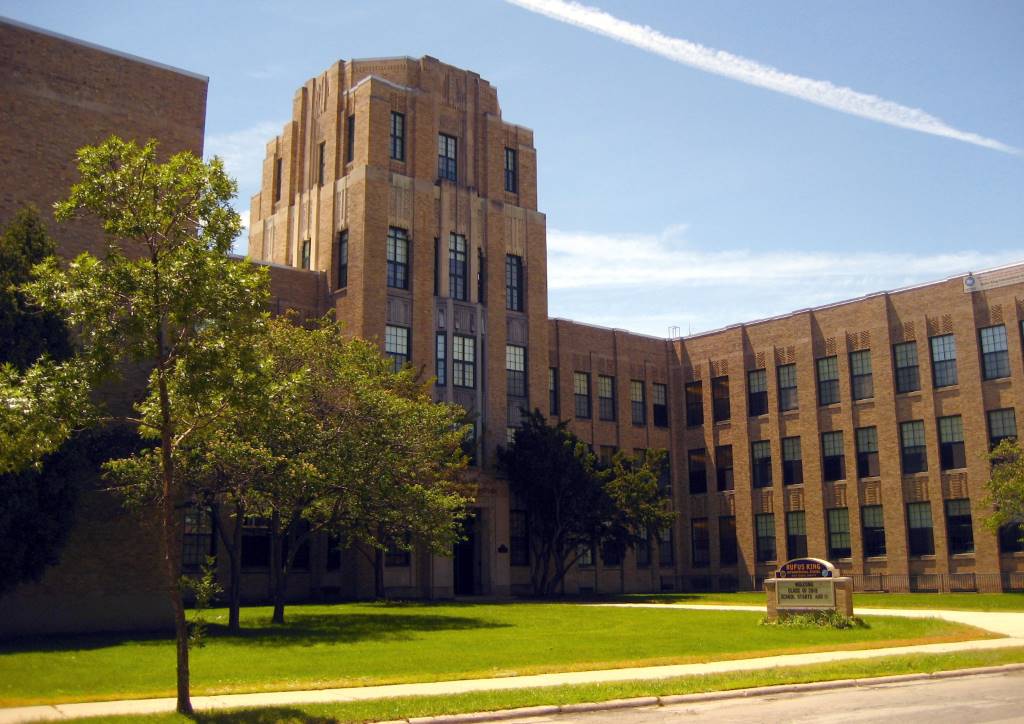The Rationale for MPS Referendum
Despite scare stories, ballot initiative asks for annual funding increase of $87 million, not $640 million.
“Property taxes would spike under MPS referendum scenarios,” screamed the headline from the Nov. 19 Milwaukee Journal Sentinel. “…more than doubling local property tax bills,” the newspaper article went on to say.
“Pie in the sky,” was one of the subheadings of the article quoting Steve Francavigia of Aurora Health Care referring to the largest price tag. Clearly the Milwaukee Public Schools (MPS) task force members were taken aback by the high end of the proposed dollar amount: $640 million for a plan “A,” $319 for a plan “B”. On that level, the newspaper did not get it wrong.
But these two numbers were not the amount that the district would ask for in a referendum. On the level, the newspaper erred. Plan “A” and “B” numbers were the amount it would cost to give MPS children what they deserved. The money would have to come from multiple sources.
One month later, on Dec. 19, the school board passed a resolution to place a referendum on the April 7, 2020, ballot which would raise $87 million annually or the equivalent of an additional $160 on a home assessed at $100,000. This would be the first referendum for MPS to raise funding over state-imposed caps since 1993.
So why did the school district throw out such a huge dollar amount at a task force meeting, knowing there was no way they could successfully ask for $640 million in a referendum?
The task force charge
The administration was asked by the school board to present an analysis of what a high “standard of care” would entail and the cost of implementation. That standard of care included everything the board and administration thought that students deserve — from lower class sizes to art and music, and guidance counselors and psychologists. The task force was never created simply to determine a dollar amount for a referendum and set what that money would buy.
The board understood there was a limit to what could be asked in a referendum. Unfortunately, board members might not have communicated that very well to the public, the media and even some members of the task force itself.
The original charge from the board states “The Community Task Force shall present to the Board a solution (or a set of solutions)” and goes on to say that its solutions should “take into consideration the impact on local taxpayers.”
To understand the context, it is important to look back to June 2019 when the school board passed a resolution kicking off the whole funding debate. That resolution was authored by school board member Bob Peterson.
In the June resolution, Peterson outlined what he thought those resources should be:
“WHEREAS, there is growing unity in our community that students of MPS need and deserve smaller class sizes, additional social workers, psychologists, nurses and guidance counselors, full time librarians, full time art, music, and physical education teachers in all our schools, quality professional development on matters of restorative practices and culturally responsive teaching, bilingual education and Science, Technology, Engineering, Art, and Math (STEAM) and expanded three-year old kindergarten opportunities and
“WHEREAS, all our students, no matter their special needs or the neighborhood they live in, deserve high quality, certified teachers in their community…”
Following that direction, the administration said to the task force, here is what we think our children deserve; here is how much it would cost; it is up to you to determine if these are the correct goals and help us determine how to get there.
Conservative push back
Will Flanders of the conservative Wisconsin Institute for Law & Liberty quickly condemned the possible case for the MPS referendum as “absurd” citing what he thought was the highest potential amount of $640 million in a referendum, perhaps taking that number from the Milwaukee Journal Sentinel.
Flanders went on to say that the district already spends as much as many surrounding districts. He charged that MPS would actually bring in more state aid if the referendum passed, because the present aid formula actually rewards districts that are willing to tax themselves even more.
While suburban taxpayers might be up in arms that Milwaukee could actually get more state money because of an MPS referendum, Flanders might have given Milwaukee taxpayers a reason to vote for the referendum: receiving additional state aid.
How one figures the dollars depends upon what gets counted. Flanders counted every dollar MPS gets from local taxes, plus state and federal money. MPS didn’t count federal funds because those dollars cannot be spent except in very specific areas. Federal food service money can only be used to feed low-income students, for example. Federal Heart Start funds can only be used for early childhood students whom the school system is not required to service by state law.
In addition, Milwaukee taxpayers raise funds that are taken off the top of the district’s budget to support children in the voucher or Parental Choice program. In the coming year, Milwaukee Public Schools must turn over $31.8 million to the voucher program from its tax revenues. The district cannot count any of those children in the program as students for additional state aid. No other Wisconsin district is treated in this same manner.
Getting what children need
Peterson sees the comparison to other districts spending similar amounts of money for their children as unfair. “Milwaukee Public Schools has a large number of students living in poverty and with special needs,” he points out.
The latest state report card shows that Milwaukee Public School students include 19.7% students with disabilities, 82.9% economically disadvantaged students and 11.9% English language learners.
Schools lacking art and music are often schools that have to spend additional money to hire an extra reading teacher or a teacher for English language learners. A single child with special needs can cost a school as much as a whole classroom of children. Some inner-city schools have installed washers and dryers to clean the clothes of children who own nothing more than the clothes on their backs. Treating all children equally is not the same as treating all children equitably; some children just have greater needs.
When it comes to what the proposed referendum will do, Peterson stated: “We will be very clear on what that money can buy.” When one adds up the money and spreads it out across the district, the proposed referendum would only add one or two teachers per school, hardly touching the enormous needs of the district.
When the school board held a public hearing on the task force recommendation, less than twenty individuals chose to speak. All spoke in favor of a referendum. Peterson said he was surprised that no one spoke in opposition. He expected, perhaps, that a real estate agent would complain that an increase in taxes would make homes harder to sell. Of course, the quality of schools also affects how prospective homeowners look at a neighborhood.
Peterson believes that passing a referendum is only a first step in securing the necessary funding for the schools. The public must be mobilized to demand funds from the state, and he looks back on the march for public education last spring that started in Palmyra-Eagle and ended in Madison. The underfunding of education is not just a Milwaukee problem; it is an issue statewide, especially for poorer districts.
“Not all funding should come from the property tax. It should come primarily from the state and the feds who have the capacity to use progressive forms of taxation to generate revenue.”
“That is all the reason we will have to fight for the state to do what is right. That is the responsibility of the whole community to do that,” Peterson adds. “We are not just talking about our kids; we are talking about the future of Milwaukee.”
Reprinted with permission of Wisconsin Examiner.
More about the 2020 MPS Referendum
- Near-Record Year for School Referendums - Madeline Fox - Apr 15th, 2020
- Data Wonk: Why The MPS Referendum Is Needed - Bruce Thompson - Mar 11th, 2020
- Op Ed: Why I’m Canvassing for MPS - Chloe Smith - Feb 26th, 2020
- Murphy’s Law: Poll Shows Surprising Support for MPS - Bruce Murphy - Feb 12th, 2020
- The Educator: The Rationale for MPS Referendum - Terry Falk - Jan 14th, 2020
- Milwaukee Board of School Directors Votes to go to Referendum - Milwaukee Public Schools - Dec 20th, 2019
- Questions for Milwaukee teachers’ union on poll results - Milwaukee Works, Inc. - Dec 12th, 2019
- Op Ed: Say Yes To MPS Referendum - Julie Rowley - Dec 5th, 2019
- Data Wonk: Would MPS Referendum Pass? Should it? - Bruce Thompson - Aug 7th, 2019
Read more about 2020 MPS Referendum here
Political Contributions Tracker
Displaying political contributions between people mentioned in this story. Learn more.
The Educator
-
The School Policing Blindspot
 Jul 14th, 2020 by Terry Falk
Jul 14th, 2020 by Terry Falk
-
How Does Residency Change Affect Teachers?
 Jan 2nd, 2020 by Terry Falk
Jan 2nd, 2020 by Terry Falk
-
St. Paul a Model for MPS Funding Effort?
 Nov 18th, 2019 by Terry Falk
Nov 18th, 2019 by Terry Falk






















How much does the average rental unit pay?